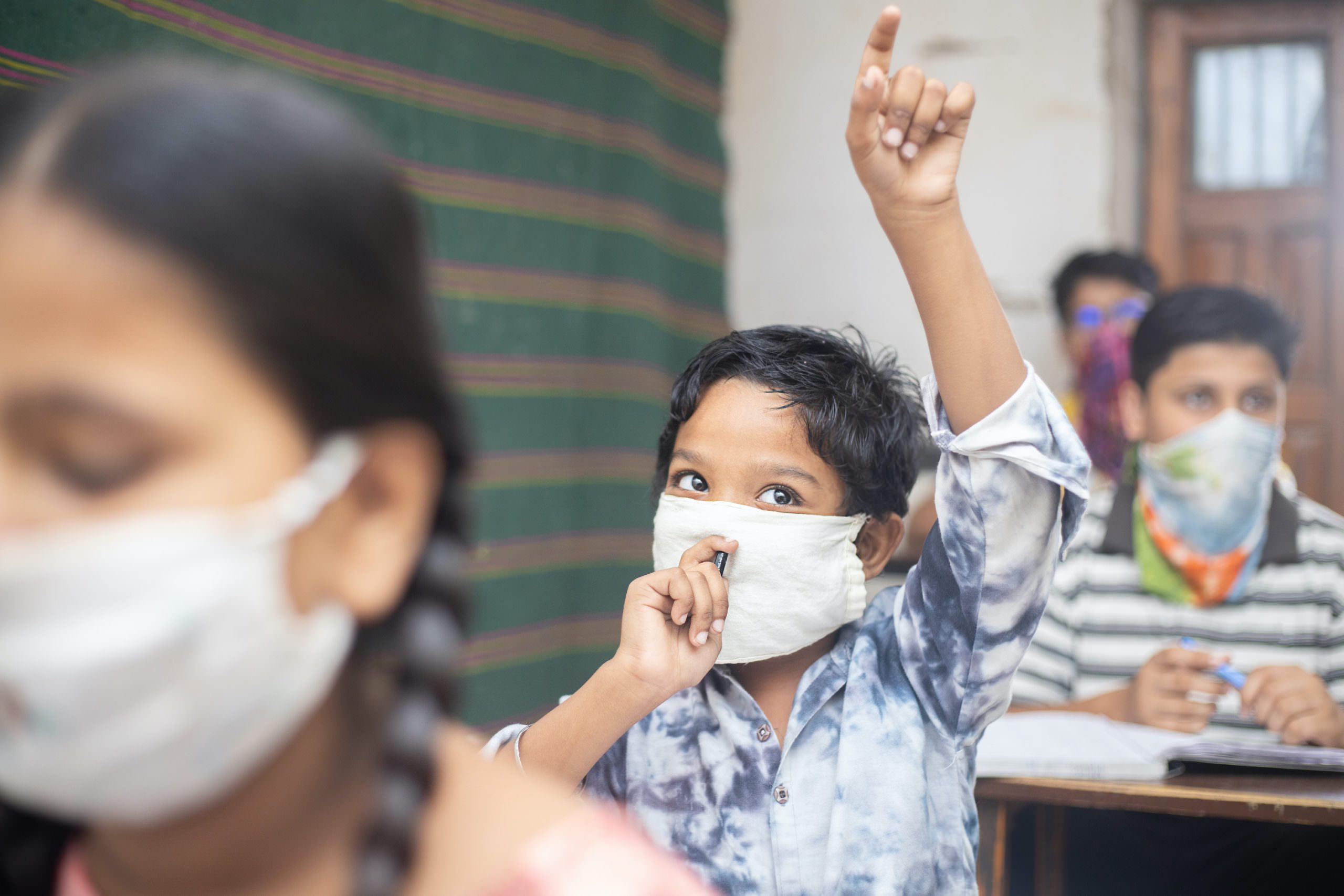
Teachers using the Seed for Change smartphone app, KamyabiTest, will better track student progress after COVID educational disruptions. Adobe Photo.
Isabel Macdonald, a Harvard doctoral student in public policy, was the recipient of a Mittal Institute Seed for Change grant in 2020. Isabel’s research focuses on education and financial inclusion, and her current projects include an analysis of training for microfinance borrowers in Pakistan, and a framework for the political economy of education reform. The following is a report in her own words on her project, KamyabiTest, a smartphone app that better helps Pakistani teachers track student progress.
As the COVID-19 pandemic stretches on and school closures continue, children in Pakistan are falling further and further behind. When schools are finally able to resume, teachers will face the monumental task of teaching to classrooms where the average student is far behind the curriculum and learning inequality is high. This situation raises an urgent need for tools to support teachers in bringing their students up to speed.
The KamyabiTest tool aims to address the key needs of teachers at this important juncture. With support from the Mittal Institute Seed for Change grant, the project team hired a developer to build a minimal viable product (MVP) of an application that teachers can use on their mobile smartphones, tablets, or desktop. The app currently includes prototypes of the following features:
- Diagnostic Tests: Tests in three subjects (Math, Urdu, and English) for grades 1-5 to help teachers diagnose the learning levels of their students
- Grading: An easy-to-enter grading tool to reduce time teachers spend grading tests
- Learning Gaps Analysis: Tables identifying common learning gaps, based on Student Learning Objectives from the national curriculum
- Peer Groups: Sorting tool to place kids in peer learning groups based on test performance
- Lesson Plans: Library to be filled with lesson plans from the government-approved remedial instruction program
Intro Screen Test Score Entry Learning Gaps Tool Peer Group Sorting Lesson Plan Library
The project team has also been working with a pool of teachers to test components of the app. For example, the team went through several iterations of the test score entry page to ensure that it was easily understandable and scores could be entered as quickly as possible. They also reduced the number of buttons on the home screen when teachers were overwhelmed by all the features.
In the near future, the developers will be working on improving several features of the application, including more visuals around learning distributions and a tool to help teachers administer and immediately enter oral test scores for younger students. The broader team is preparing for a full pilot of the product with several schools in spring 2021. The eventual goal is to include the app in a toolkit for teachers who will be implementing a new remedial curriculum across Pakistan in the fall. I am also working with a group of researchers to plan a full evaluation of the technology, which could lead to insights that impact remedial instruction across the developing world.
